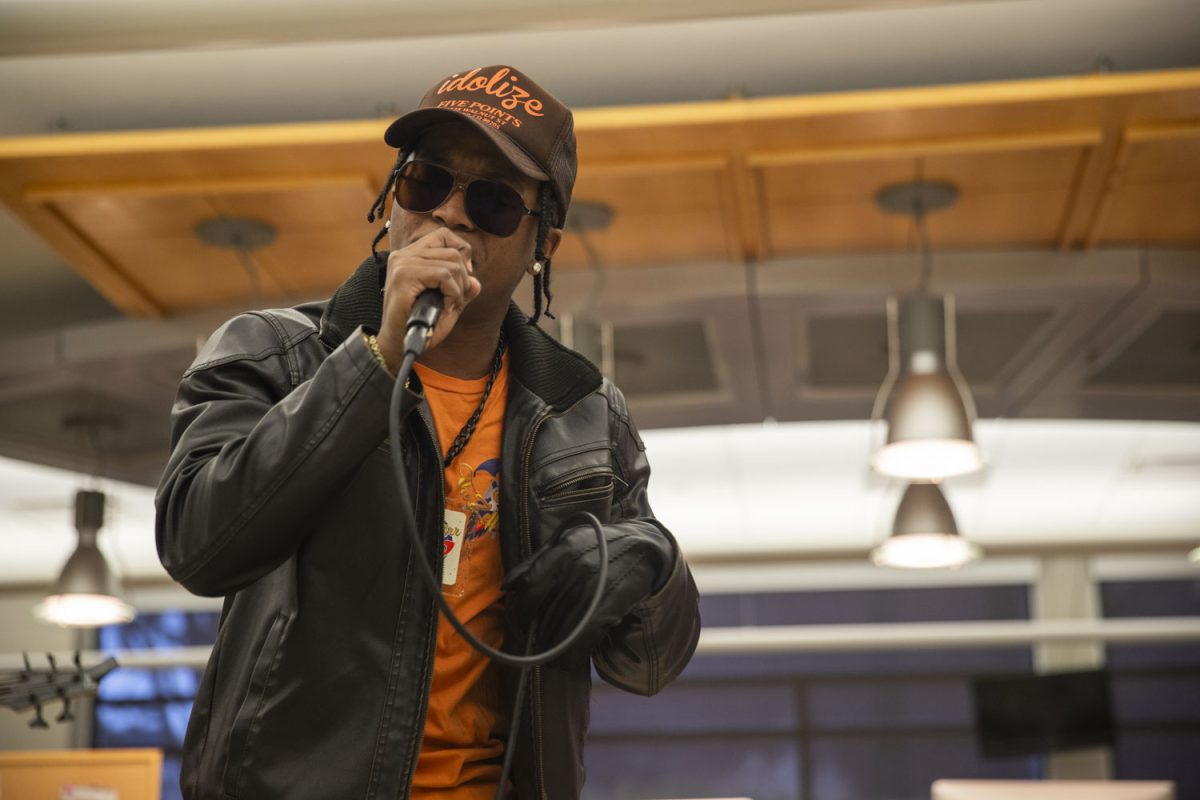The “Season of Inciting Theatre” is upon us. Dreamwell Theatre is dedicating its current season to banned plays or works that have caused riots when first produced. The company continues its run of risqué shows with “Master Harold” … and the Boys — a quintessential example of a controversial show.
South African writer Athol Fugard’s Master Harold, was first produced by the Yale Repertory Theatre in the early 1980s, but the show was not allowed to be produced in South Africa until many years later because of its contentious content.
The production will première at 7:30 p.m. today at the Unitarian Universalist Society, 10 S. Gilbert St. The play will run today and Saturday and Oct. 2 and 3, with all shows beginning at 7:30 p.m. Admission is $12 for adults, $10 for seniors, and $8 for students.
Although some of Fugard’s other plays have been produced by Riverside Theatre and the UI, Master Harold has never been performed in the Iowa City community.
“As soon as I had a chance to suggest it to a theater, I did,” director Rachael Lindhart said. She was so taken by the play when she first saw it that she went to it three times.
“I just loved it,” she said. “And I always thought I’d like to direct it.”
The play, set in the 1950s, follows two African American boys, Sam and Willie, as they run a tearoom in Port Elizabeth, South Africa, while the owner is hospitalized. The play focuses on the complex emotional and psychological interaction between the brothers and Hally.
Lindhart said all of Fugard’s plays incorporate bigotry.
“[Master Harold] is the most accessible of [Fugard’s] material for American audiences, because some of us don’t understand what the black experience would be, but we do understand what the adolescence experience would be — and that’s what this play does,” she said.
One of the three cast members, Thomas Henrich, a UI theater major, plays Hally, the son of the owner. He said he is thrilled about teaching the audience about the issues encompassed in the play through his performance.
“There is so much to tell with this piece,” he said. “I’ve never read a play that I’ve felt so emotionally charged about.”
The play shows that there is no winning side when it comes to bigotry.
“[The play shows] how deeply engraved racism can be despite your best efforts to contain it,” he said. “How it possesses you and takes control of you even though you do not want it to in ways you’re not aware of.”
Lindhart agreed.
“When you do a play as powerful as this one, it is very interesting to see where people start crying because it’s at different places, probably depending on their experiences,” she said. “Different parts will be the most moving to different people.”
Henrich said his favorite part of the production is the chance to perform a “powerful” work.
“Everything I’ve done up until now has been good, has been fun,” he said. “But it doesn’t have the same emotional impact that this play has.”
Lindhart is hoping for a “mixed bag” of audience members. There are a lot of things to be taken away from Master Harold, and different people will take away different things, she said.
“The message is so universal,” Henrich said. “It can be applied to just about any social problem that we have, including just plain growing up.”






